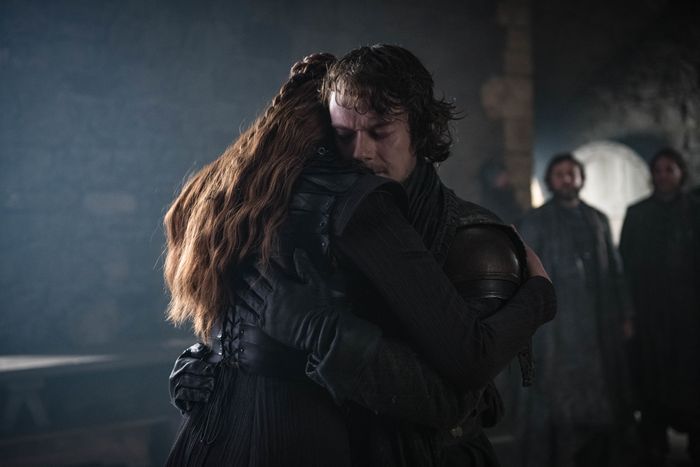Since you brought up Sansa, let’s start with the scene where she and Theon reunite and embrace.
You should have seen me on set that day. I was a bloody mess. [Laughs.] It was a very important moment for me, for obvious reasons. I wrote the “wedding night” episode in season five, which was a huge turning point for Sansa and for Theon. They are the only two people in this world that know know what the other endured, because they both were the victims of this abuser — sexual victims, psychological victims, pretty much every way you can be victimized, he inflicted upon them. They both survived it. They’ve both come through it. They both have a very long way to go, but they know that they have each other.
I actually worked for a while on a dialogue scene between them where they talk all about it. I never even turned it in — it didn’t even make my first draft — and no one ever has read it but me. It felt like recapping something everyone had already seen. The audience knows what they endured. Those characters know what they endured. Having them talk about it felt forced, it felt contrived, it felt like I was writing a scene to answer my critics, which is not the reason you should write a scene.
And when you have actors like Sophie [Turner] and Alfie [Allen] and a director like David [Nutter], you don’t need that stuff. So a scene that I never got right became distilled to what’s there: “I’ve come to fight for Winterfell if you’ll have me,” and then that shot in the middle of the song where they’re sharing a meal together. They’re drawing strength from each other even now. Having them share that meal on what could be their last night in the world spoke volumes.
Tags: A Song of Ice and Fire, asoiaf, Bryan Cogman, fantasy, Game of Thrones, George R.R. Martin, interviews, reviews, TV, TV reviews, vulture

